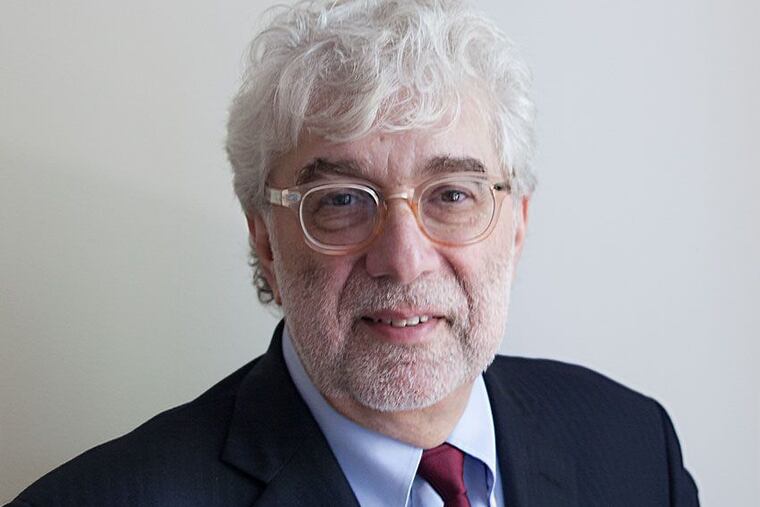Weitzman Jewish Museum president will step down in 2024
Misha Galperin stewarded the museum through programming and financial growth and as a leader in education on Jewish life and identity.

Misha Galperin, the president and CEO who helped lead the Weitzman National Museum of American Jewish History from bankruptcy to economic stability, has announced he will be stepping down after nearly five years.
“The time has come,” said Galperin, a Brooklyn resident who came to the U.S. as a teenage refugee from Ukraine.
Galperin, 65, said he will continue in his post into the new year to help the museum’s Board of Trustees find his successor, and remain temporarily as a consultant to help the new CEO at the start of their tenure.
“Today’s Weitzman Museum is a vibrant, strong, and growing national education institution, the only one in the country telling the entire story of the Jewish People’s journeys to and throughout America,” wrote Galperin in a letter to the museum community that went out Monday. “We have made clear the Jewish community’s gratitude for the opportunities to enjoy and partake in the freedoms this country has to offer, and to be involved in building a ‘more perfect union.’”
Galperin led the Jewish Federation of Greater Washington the UJA Federation of New York, and other major Jewish organizations before his current post. He joined the Philadelphia Jewish History Museum in 2019, initially as a consultant. Among his tasks was to help the museum deal with significant financial difficulties, including a $30 million debt. Later that year, he was named interim CEO and then president.
Galperin said he never totally stopped his work with his consulting practice ZANDAFI, named for his children, and he will be focusing more on working with philanthropies that give grants to groups fighting antisemitism and supporting Israel.
On Tuesday, Galperin was traveling to Washington for the March for Israel, which he was involved in organizing.
Several of his Weitzman colleagues credit Galperin with shepherding the museum through a financially treacherous time that included a crushing debt from a building renovation, plus the COVID-19 pandemic, and for helping the museum reach stability and grow in audience and program.
Acts of generous sponsorship helped resolve the debt, which the museum incurred when creating its $150 million facility off Independence Mall in 2010. A dozen bondholders — local philanthropists and businesspeople — agreed to forgive more than $13 million owed to them.
Former museum board member Mitchell Morgan and his family put up $10 million to buy the building on Fifth and Independence, and agreed to lease the museum building to the museum for $1,000 a month with an option to buy it. A few months after emerging from bankruptcy in 2021, the museum announced that footwear entrepreneur Stuart Weitzman had given the museum a naming gift of an undisclosed amount that allowed the museum to buy back its building and set up what museum officials say is now an eight-figure endowment.
Galperin “helped orchestrate a rescue plan,” said Morgan, who is chairman of Temple University’s board.
“I give him a lot of credit,” Morgan said. “He was an important person for the museum.”
Under Galperin’s leadership, the museum has been able to raise more than $60 million in contributions, another $4.2 million in revenue, $2.3 million in government grants, and create a solid foundation for an endowment, according to a museum spokeswoman .
During his tenure, museum programs reached over 4 million people. He oversaw growth in Jewish American Heritage Month programming and the presentation of the annual Philadelphia Jewish Film and Media festival, and hosted October’s Jewish Priorities Conference that brought together national and global Jewish leaders.
“We will miss Misha and are grateful for his leadership these past almost five years,” said Sharon Tobin Kestenbaum, cochair of the Board of Trustees. “Misha closes the book on a monumental chapter in the museum’s story as we work to find the successor who will lead us into our next exciting chapter.”